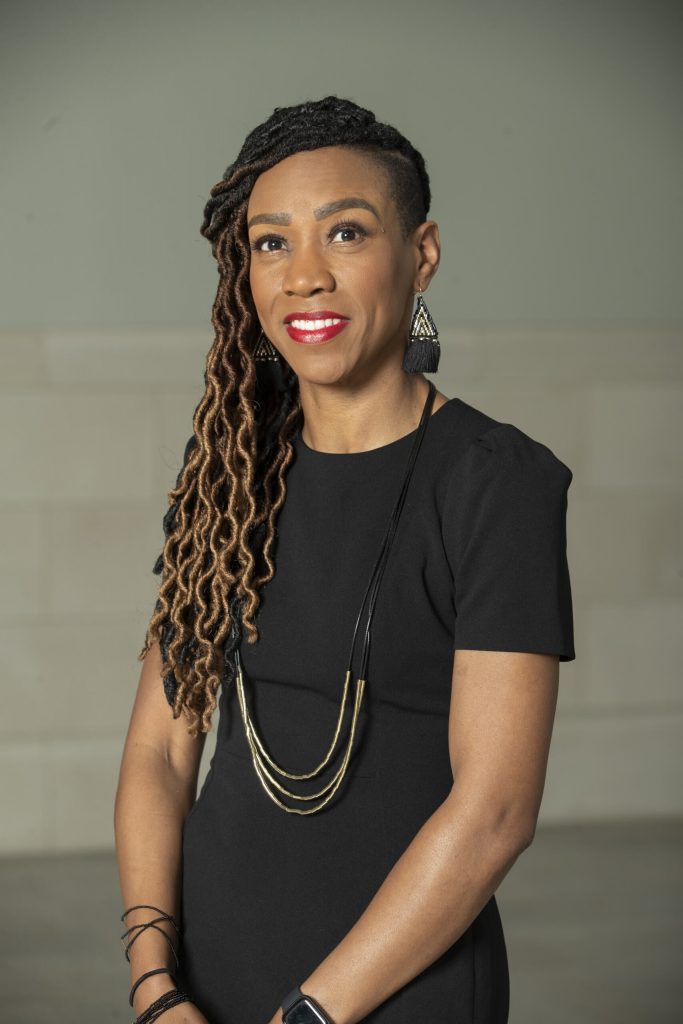
As the fifth season of The Raceless Gospel podcast ends, I look at my hands and wonder how it came to this. How did it end up costing so much?
I’m not talking about dollars and cents, but something pricier. I had to tell more truths than I budgeted for. Each episode was taxing and seemingly asking for more and more.
I know what I said in my synopsis: Named for the voluntary contributions given from the heart of members, the fifth season examines the North American church’s relationship with money and what happens when the divine is revealed in dollar signs. From Judas’ thirty pieces of silver to the prosperity gospel, each episode names and claims the church’s role in the ministry of giving.
But this virtual service for a digital assembly includes a prayer and testimony, each proving harder than the next. Far removed from a pulpit, it was supposed to be safer, less demanding.
Besides, I’ve done this before. Though not routine, I expect words to come, an idea distilled and to dig deep.
But I am always at the mercy of the Muse. It is a guided creative process for me. Writing for this season of the podcast reminded me of what it calls for, what it asks of you and what it makes you do.
It is a matter of integrity. I had to be honest about what comes up when I think about my relationship with money. In one episode, I offer this testimony:
First giving honor to God, who makes heads and tails of my life, to the pastor, visitors, saints and friends, I need to testify:
Oldest of three and a possible, baby miscarried, I knew early on that life was a gamble. My parents played cards for money.
Playing Spades, Tunk and Rummy on Bicycle cards slammed on the table hard because it was a high-stakes game. They needed the money to supplement the government’s assistance: rental assistance, food stamps and a stipend for each child.
Don’t tell them my father was living with us, though off and on, because their relationship was off and on.
We would have lost it all. His absence was part of the agreement.
They also played the numbers, the lottery: combination and straight risks, hoping to hit it big. Money will deliver us from these government projects, these cold, concrete buildings that meant society took hard positions against us, those that society wouldn’t bet on. But I made it, as do so many others.
It wasn’t a coin toss because it wasn’t a fifty-fifty chance I’d escape it. More like 80-20. The statistics were stacked against me. So, it was all up in the air like the God I prayed to, who also required money.
Is faith a gamble or a lottery? Was God looking at my pockets or my heart? If the former, then the church was really preaching the saving power of money, though they told me I couldn’t serve both.
Do you see what I mean? “A Love Offering” tested my commitment to being authentic. It reminded me of the responsibility of the artist to remain true to the craft and the words of James Baldwin in “The Artist’s Struggle for Integrity”:
“And what is crucial here is that if it hurt you, that is not what’s important. Everybody’s hurt. What is important, what corrals you, what bullwhips you, what drives you, torments you, is that you must find some way of using this to connect you with everyone else alive. This is all you have to do it with. You must understand that your pain is trivial except insofar as you can use it to connect with other people’s pain; and insofar as you can do that with your pain, you can be released from it, and then hopefully it works the other way around too; insofar as I can tell you what it is to suffer, perhaps I can help you to suffer less. Then, you make — oh, fifteen years later, several thousand drinks later, two or three divorces, God knows how many broken friendships and an exile of one kind or another — some kind of breakthrough, which is your first articulation of who you are: that is to say, your first articulation of who you suspect we all are.”
Earlier this year, I was going through old boxes and rediscovered an employment application partially filled out by my grandmother, Eva Mae Thomas. I had taken it from her bedroom after her passing along with a picture of Pastor Moultrie, who sold blessed oils and prayer cloths. As a child, we visited her services frequently with my great-grandmother, Josephine Dennis.
I also grabbed a card from Frederick J. Eikerenkoetter II, better known as Rev. Ike, a televangelist. I didn’t know then why I had chosen them. But today, I feel like I’m paying through the nose for the realization that they, too, gave a love offering and died flat broke.

